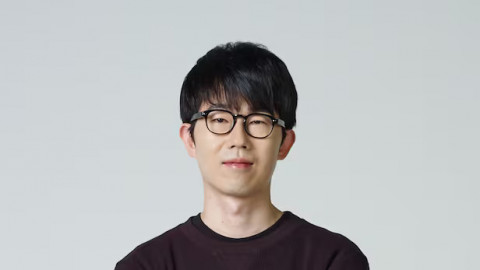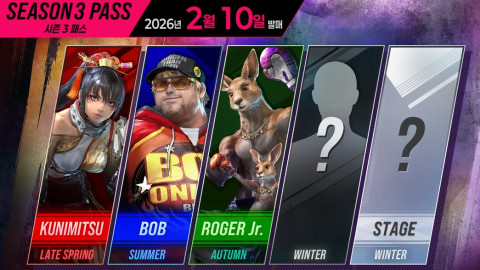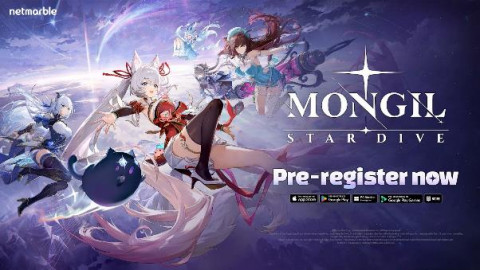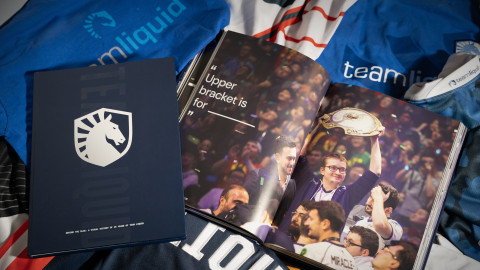
Despite the industry’s valiant efforts to establish esports on par with traditional sports, the gap between the two seem to linger to this day. Compared to, say, twenty years ago, when the word esports itself was a novelty, people have come to accept it as a new form of competitive sports in a positive light, evidenced by fan culture, regulations, and public perception. That said, video games are still generally perceived as counterproductive to education, which means that the status of esports won’t be totally free of preconceptions.
Things are a little bit different nowadays because being a good student can synergize with esports, a feat once thought impossible. For example, students from all corners of the country competed in Heroes of the Dorm – the biggest collegiate HotS league in the world - for a chance to win free tuition. More importantly, some of the contenders of the tournament went on to pursue professional gaming. Also, some students hone their gaming skills at their college clubs to win prize money and scholarships in smaller tournaments, while others can fulfill college credit depending on the school’s curriculum. This phenomenon isn’t only limited to college, as high school students can go to college based on esports prowess behind the full support of their parents.
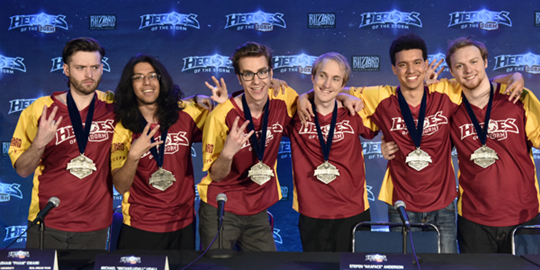
Granted, the transition of perception must have been a long and arduous process. That’s why the role of pioneer, who can persuade the older generations of schools and parents to the benefits of esports, is paramount. Whether that support is abstract or material, someone must have paved the way in emphasizing the importance of college esports and coming up with proper compensation by connecting esports and scholarship, as well as bringing gaming out in open college spaces. A case in point is Executive Director Kurt Melcher at Robert Morris University - Illinois.
Melcher not only played a pivotal role in breathing legitimacy into esports as a college sport, he also opened new possibilities for gaming enthusiasts to receive scholarships and other opportunities in various schools. Inven caught up with Melcher, who also founded esports scholarship programs, to hear about his past strides, scholarships, and future goals.

▲ Kurt Melcher, Executive Esports Director at Intersport (LinkedIn) **Login required
How and why did you start the esports scholarship program at RMU?
I have an intense passion for video games. I also respect video games, especially intricate, team focused, and competitive video games. I believe that in the same way we can identify elite talent in traditional sports such as basketball and soccer, the same can be done to identify talent in video games such as League of Legends and CS:GO. Why would we only identify and reward student athletes who can put a ball through a hole or across a line? We are empowering a new student athlete and rewarding an innovative skill set by bringing that into an educational structure where their talent can be cultivated and rewarded.
Other professional sports have youth leagues where players are recruited. E-Sports has few active youth leagues. What then are the ways you recruit esports scholars?
Obviously, the hiring process is vital to make sure you have the proper staff to be able to build a program. While recruiting is a huge part of the process, being able to coach and manage teams is equally important. No matter what game title we are recruiting for, we task our coaching staff to have a deep relationship with that community. There are no youth clubs or AAU esports programs so being able to reach into the community for talent is a vital part of the process. Once we are able to identify quality players, the recruiting process isn’t really that different than traditional sports. We offer for recruits to tour our campus, meet the staff in person and meet some of the existing team members. While the identification process may all be digital, I still believe there is great value to having players tour a campus where they may plan on attending school so they can be sure they are comfortable with all aspects of the school – program, location, coursework, etc.
What talents are considered when selecting players?
In-game ability is probably the first consideration. We place a huge amount of value into character as well. Though that is also often the hardest trait to evaluate. No matter how mechanically great a player is, if they are unable to play within a team dynamic, they will ultimately fail. We try to find the best in-game players that are also competitive, willing to learn, and excel in a team.
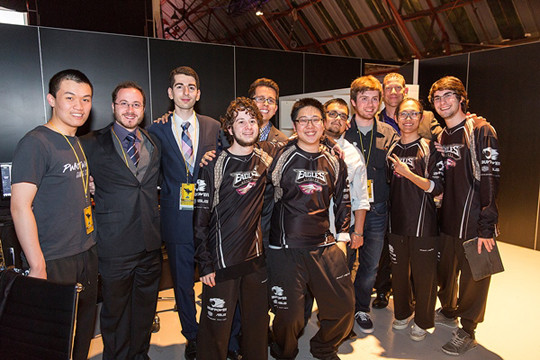
How does the university support esports in terms of finances, facilities, and exposure?
The university supports the program by providing an operating budget for gear and some limited travel to local LAN events. We typically provide our players with uniforms, three esports training shirts, hoodies, and pullover sweatshirts all branded with esports sponsors and our athletic logo. The university also supports the program by allowing us to hire quality staff and by providing an exceptional arena for our teams to practice and play. The school treats esports as any of our other sports in athletics.
There are currently no regular esports leagues as there are with other collegiate sports. What do you think about the prospects for “official” collegiate esports leagues? How would *you* want to see them develop?
Rather than hold one-off tournaments, I would like to see a full season of organized competition in a conference format that would hold playoffs to determine winners and advance to national competitions. I think there is also an opportunity to hold world university competitions.
What advice would you give to schools considering an esports scholarship program?
My advice would be to not go halfway. If you are considering adding esports then, in my opinion, it needs to be a full commitment by the school to fully embrace the community and create a program that will be relevant to the players. Providing substantial support through scholarships, facilities and support budget creates authenticity. Schools are missing the mark if they shove students in an existing computer lab and call it esports.
How do you ultimately view the future of college esports scholarships?
In 5-7 years, I believe that nearly every school with a competitive sports program will have an organized esports program – either in athletics or through student services or through their technology/academic programs. I think there will be substantial academic programming that will provide support to the burgeoning industry of esports through a variety of differing academic disciplines - business development, computer programing, performing arts, sports management, production, and marketing. I see a national championship in various titles, an international competition and the potential for an international draft into professional leagues – but first let's work on getting our existing universities to recognize and embrace what they already have on the majority of their campuses – thriving esports clubs with talented players yearning for recognition and assistance.
▲ Kurt Melcher's TEDx talk on the growth and future of college esports.
-

A managing editor who can do more things than you think.
-

Sort by:
Comments :0

